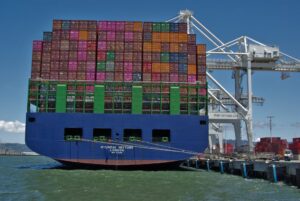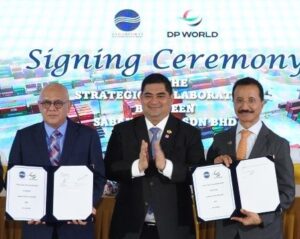The building of a 600km railroad connecting Central Asia to the ports of Karachi and Gwadar could signify a shift away from major Iranian ports in favour of southeastern connections, a regional expert tells PTI.
The decision on 2 February to build the $5 billion Mazar-e-Sharif-Kabul-Peshawar rail line has been influenced by geopolitical uncertainty in Iran and the economic benefits of connecting to Pakistan and India, Umida Hashimova, Analyst at CNA, a research organisation in Arlington, VA, told PTI in an interview.
Historically, nations in the Commonwealth of Independent States (CIS) such as Uzbekistan, Afghanistan, and Turkmenistan have favoured using Bandar Abbas and Chabahar ports in trade due to legacy transport links and ease of access to the Arabian Sea.
However, the new railroad, connecting Uzbekistan and Afghanistan to the major Pakistani ports, is expected to reduce expenses from CIS nations to Pakistani ports by 30-35%. The project will also slash Russia-Pakistan transportation costs by up to 20%. The new railroad is estimated to be completed within five years.
US Influence
Hashimova highlighted that greater powers such as China and the US will have a vested interest in moving Central Asian reliance away from Iranian ports, due to the current US-Iranian sanctions and the favourability of Pakistani and Indian sea hubs.
“[In July 2020] the US developed a memorandum of development with Uzbekistan,” explained Hashimova. “The Americans might be participating in helping to raise funds for these railroad constructions, and where you have US money, you have US interest.”
Hashimova continued that the budding relationship last year will have factored into the decision to move away from Iran’s ports, as its lacklustre geopolitical relationship with the US continues.
Expansion east
But the building of the railroad says as much about Pakistan it does Iran: the cost of transporting a container from Uzbekistan to Karachi would be approximately $1,400-$1,600, compared to up to $3,000 to Bandar Abbas.
Not only this, but the railroad could improve connections to major Indian ports such as Navi Mumbai and Deendayal as the CIS expands in trade.
By 2025, CIS predictions indicate that India and Pakistan’s trade with the CIS states will reach $20 billion, as the growing region continues to utilise the ports to reach international partners. Preliminary assessments see the launch of the railroad move 10 million tons of cargo of freight traffic to Pakistani ports onwards.
Hashimova highlighted China’s influence also in the favouring of southeastern ports: “The Pakistani and Indian ports could become really cost-effective in this timeline,” she commented.
“China will tap into that, because at the end of the day a lot of these various railroads are for China’s consumption as China is the powerhouse in that region.
“If they can get China interested in the project, [Pakistani and Indian ports] can serve as pass through, which Central Asia wants to be in the bigger picture of trade.”
How Iran responds
The railroad will not signal a complete detachment away from traffic to Bandar Abbas and Chabahar, Hashimova explained. The governments of Uzbekistan and Central Asian will still utilise Iran’s ports whilst the railroad is built and will continue to do so afterwards – but the decision will rattle port stakeholders.
“I do think there will be a huge concern,” argued Hashimova. The new “arms-length” approach from CIS nations, Hashimova says, will raise alarm in Iran who are facing economic uncertainty from giants such as the US – and now its partners in nearby Central Asia are favouring other major ports to transport goods.
“This is falling on them and muddying their face, because now not only great powers are turning away, but it’s also countries in the region also.
“Regions are finding other routes because it’s economically more viable or geopolitically more viable.”









